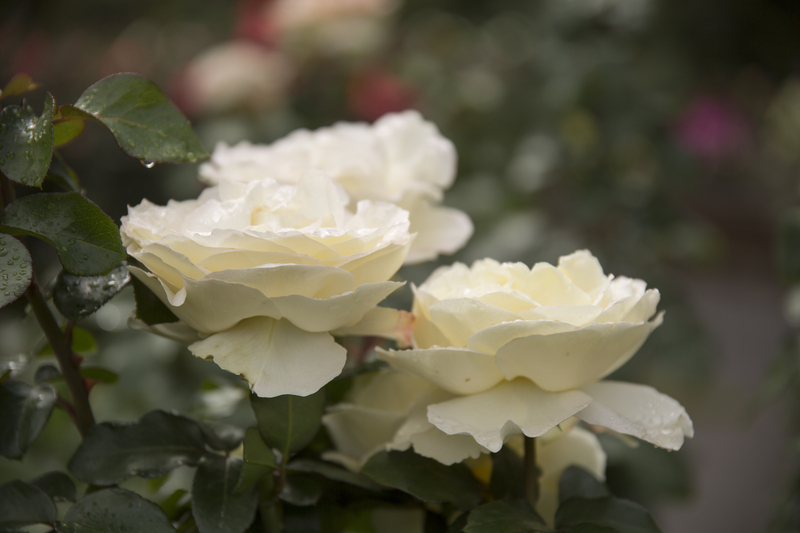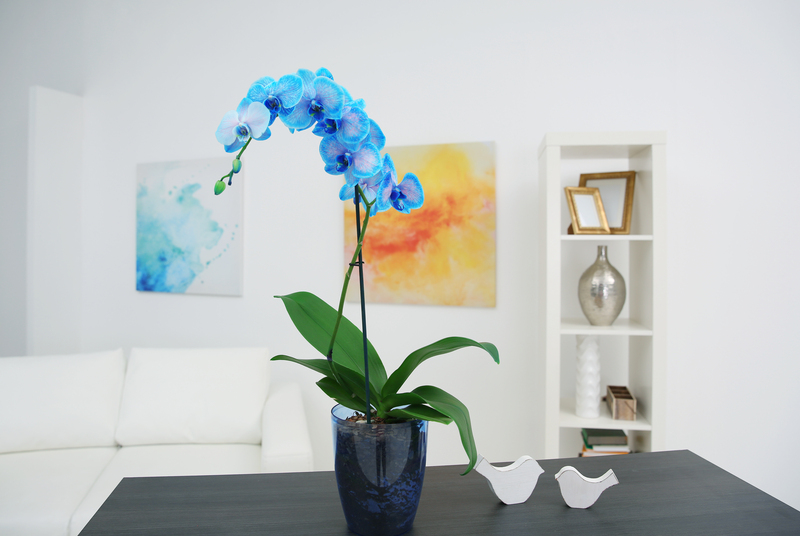Elevate your gardening skills by cultivating a herbal delight
Posted on 16/08/2025
Elevate Your Gardening Skills by Cultivating a Herbal Delight
Gardening has always been a rewarding pursuit, blending the beauty of nature with hands-on creativity. But if you're looking to take your gardening skills to new heights, consider focusing on herbal gardening. Not only do herbs add fragrance, flavor, and medicinal value to your green space, but cultivating a herbal delight also unlocks numerous benefits and unique experiences for any gardener. In this comprehensive guide, learn how to elevate your gardening skills by cultivating a herbal delight, making your garden both lush and purposeful.
Why Focus on Growing Herbs? The Joys of Herbal Gardening
Herbal gardening goes far beyond simply planting a few culinary herbs in the corner of your yard. By growing herbs, you enrich your garden, boost your well-being, and contribute to sustainability. Here's why focusing on herbs can truly transform your gardening journey:
- Year-Round Beauty: Many herbs are evergreen or semi-evergreen, providing year-long structure and vibrancy.
- Aromatic Appeal: Herbs release delightful scents, making your outdoor space refreshing and energizing.
- Health and Wellness: Homegrown herbs are fresh, potent, and packed with healing properties for culinary, cosmetic, or medicinal use.
- Sustainability: Growing your own herbs means less reliance on store-bought, packaged products, and a lower carbon footprint.
- Pollinator-Friendly: Many herbs attract bees, butterflies, and other vital pollinators.

Getting Started: Plan Your Herbal Delight Garden
Whether you have a sprawling backyard or a modest balcony, anyone can start cultivating a herbal delight. Follow these essential steps to design a thriving herb garden:
1. Select the Right Location
Herbs generally love sunlight. Choose a spot that receives at least 6 to 8 hours of direct sun daily. Balcony railings, windowsills, raised beds, or even vertical gardens work wonders for urban herbal gardens.
2. Choose Your Herbs Wisely
Think about which herbs you'll use most--whether for cooking, teas, or remedies. Popular options to start your herb-growing adventure include:
- Basil: Perfect for Mediterranean dishes and pesto.
- Mint: Great for teas, mojitos, and desserts.
- Rosemary: Aromatic and drought-tolerant.
- Thyme: Adds subtle flavor to meats and vegetables.
- Lavender: Fragrant for sachets and calming teas.
- Sage: Earthy flavor for stuffing, roasts, and teas.
- Cilantro/Coriander: Versatile for global cuisines.
- Parsley: A garnish and nutrient booster for any cuisine.
Mix annuals and perennials to keep your garden productive year-round, and experiment with uncommon herbal delights--like lemon balm, chives, or even medicinal herbs like echinacea and calendula.
3. Prepare the Soil for Herbal Excellence
Most herbs thrive in well-draining, moderately fertile soil. Enhance your soil by mixing in organic compost and sand to prevent waterlogging. Consider a soil pH between 6.0 and 7.0 for optimal growth. Raised beds or containers let you control soil quality more easily, especially in urban environments.
4. Container vs. In-Ground Herb Gardens
If space is limited, opt for containers. Many herbs flourish in pots, hanging baskets, or window boxes. Choose pots with drainage holes and use a high-quality potting mix. For a traditional touch, grow herbs in dedicated herb beds or a formal knot garden with geometric patterns.
The Secrets of Success: Master Herbal Delight Cultivation
Essential Care and Maintenance Tips
- Water Wisely: Overwatering is one of the most common pitfalls. Most herbs prefer slightly dry conditions. Water only when the top inch of soil feels dry.
- Prune Regularly: Pinch or cut back herbs frequently to encourage bushiness and prevent flowering, which can reduce flavor intensity.
- Feed Sparingly: Excessive fertilizer leads to lush but flavorless herbs. Use a balanced organic fertilizer or liquid seaweed once a month during the growing season.
- Mulch to Retain Moisture: Use organic mulch like straw or shredded bark to retain soil moisture and suppress weeds.
Pest and Disease Management
One of the joys of cultivating a herbal delight is that many herbs naturally repel pests due to their strong aromas. However, keep an eye out for aphids, spider mites, and fungal diseases. Encourage natural predators, use insecticidal soap if necessary, and provide good air circulation to minimize fungal issues.
Expand Your Skills: Creative Ways to Use Your Herbal Harvest
Once you start to elevate your gardening skills by growing a herbal delight, you'll discover a world of creative uses for your harvest:
- Culinary Adventures: Fresh herbs add flavor and aroma to everything from soups to salads, sauces, and desserts.
- Herbal Teas: Steep fresh leaves like mint, lemon balm, or chamomile for soothing, restorative infusions.
- DIY Herbal Beauty: Infuse oils with lavender or rosemary for homemade cosmetics and bath products.
- Natural Remedies: Explore age-old herbal remedies; for instance, sage tea for sore throats or calendula salves for skin health.
- Herbal Vinegars & Oils: Preserve your bounty and add gourmet flair to dishes by infusing olive oil or vinegar with fresh herbs.
- Drying and Preserving: Air-dry herbs in bunches, or use a dehydrator to stock your pantry all year long.
Expert Tips for Cultivating a Thriving Herb Garden
- Companion Planting: Grow compatible herbs together--like basil with tomatoes or mint away from other plants (since it's invasive).
- Label Your Herbs: Especially in larger gardens, use decorative or practical markers to identify herbs at every stage.
- Harvest Smart: Pick herbs in the morning, after dew has evaporated but before the sun is harsh; that's when essential oils peak, maximizing flavor.
- Rotate Your Crops: Prevent soil depletion and disease build-up by swapping annual herbs' locations each year.
- Embrace Diversity: Mix culinary, aromatic, and medicinal herbs for a more attractive and useful garden space.
Incorporating Herbs for Landscape Design
Herbs aren't just about flavor and fragrance--they can be beautiful landscaping elements. Low-growing thyme spills over rock walls, lavender creates stunning purple drifts, and tall dill or fennel adds vertical interest. Integrate colorful chard, bronze fennel, or purple basil for visual delight and edible pleasure.
Common Mistakes to Avoid When Cultivating a Herbal Delight
- Ignoring Light Requirements: Herbs need abundant sun. Skimping on light results in leggy, weak growth.
- Overwatering: Roots rot quickly if drainage is inadequate. Err on the side of dryness for Mediterranean and woody herbs.
- Overcrowding: Give every plant enough space for air flow and access to sun.
- Under-Harvesting: Regular picking encourages new growth and prevents herbs from bolting (going to seed).
- Choosing Only Annuals: Blending annuals with perennials ensures harvest through the seasons, boosting your herbal gardening success.

Herbs for Every Space: Indoor, Urban, and Balcony Gardens
Don't let a lack of space deter you. Herbal delights thrive in many environments:
- Indoor Herb Gardens: Use sunny windowsills, mason jars, or hydroponic kits for kitchen convenience all year round.
- Vertical Herb Walls: Attach planters to fences or walls to maximize limited square footage.
- Patio & Balcony Gardens: Group container-grown herbs in clusters for a lush, fragrant outdoor retreat.
- Community Gardens: Join local plots for access to larger spaces, networking, and shared resources.
Final Thoughts: Grow a Herbal Delight and Elevate Your Gardening Experience
By choosing to elevate your gardening skills by cultivating a herbal delight, you aren't just enhancing your outdoor space--you're embarking on a lifestyle upgrade with lifelong rewards. Enjoy fresher meals, healthier living, and the joy of nurturing plants from soil to table. Whether you're a beginner starting small or seeking advanced horticultural thrills, herbal gardening offers an endless adventure. Ready your pots, collect your seeds, and start growing a herbal delight in your own garden--one fragrant leaf at a time.
Further Reading & Resources
- Books: "The Complete Book of Herbs" by Lesley Bremness, "Rodale's Illustrated Encyclopedia of Herbs"
- Websites: Royal Horticultural Society: Growing Herbs, Gardener's Supply Company: Herb Gardening Tips
- Workshops: Check local botanical gardens for seasonal classes and guided herb tours.
Let your green thumb shine and cultivate a herbal delight that nourishes body, mind, and spirit!
Latest Posts
Creating a Vibrant Environment Packed with Child Attractions
Exploring Creative Concepts for Garden Seating Layouts
Breaking Ground in Your Forgotten Garden Makeover

